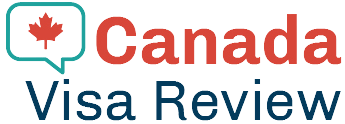You may have experienced this first-hand - the frustration and the embarrassment of having your visa to Canada be denied, but why? Allow us to enlighten those of you who still have unanswered questions and those who would much rather avoid this at any possible cost. Yearly, thousands of applicants for permanent residence in Canada have their applications denied for a number of reasons, many of which are completely avoidable. These misfortunate circumstances usually bring about much frustration and stress for candidates and their families. Canada gives various immigration alternatives to foreign nationals, but navigating the procedure in place can be testing. Here is a rundown of the common reasons why individuals are denied permanent residence in Canada, which ought to help anyone considering, or in the process of, moving to Canada.
Misrepresentation - A few instances of misrepresentation start from the candidate either misreading a question on a form, precluding items of information from a form, or misjudging the guidelines for finishing a form. While the expression "misrepresentation" may appear to imply an intentional endeavor with respect to the candidate to cover or misshape certain information, this is not generally the situation. Some cases of misrepresentation are unintentional and preventable. The consequence of this transgression is not only that the application is refused, but that the candidate might be banned from reapplying for a long time (five years for Quebec applications) too.
Late Submission - Citizenship and Immigration Canada (CIC) tries to make the immigration procedure quicker and more efficient for candidates by imposing due dates for the accommodation of certain forms and documents. Missing one of these due dates, could mean that your application is refused. In this way, knowing how and when to get certain forms, and how and when to finish certain forms, is essential. Missing a due date is generally avoidable, so it is essential that you are ready for the application due dates. While the CIC will every so often grant extensions, it is imperative to legitimately clarify the justification for extension and give reasons and/or supporting documents.
Health - All candidates for permanent residence in Canada and their dependents are required to take a medical examination with a specialist recognized by Citizenship and Immigration Canada (CIC). Certain wellbeing issues may bring about refusal. Candidates for permanent residence who require prescription for Diabetes or Hepatitis A, for instance, could be considered to be a potential weight on Canada's universal healthcare system. There are ways to beat prohibition on health grounds. For instance, a report from a specialist on the condition could help a candidate's case and dodge further medicinal examinations, delays and/or refusal.
Criminal Record/Charges - Criminal backgrounds checks from every country that the candidate has lived in for six months or more since he or she turned 18 years old are obligatory. Canada naturally needs to guarantee that foreigners to its communities don't have a criminal foundation that could conceivably undermine the wellbeing and safety of other residents. If you don't have any charges or convictions in your past, this stage is just about completing the paperwork. If you do have a past criminal offense on your record, this could present issues amid your application. A foreign national may be criminally prohibited to Canada on the grounds of serious criminality. For a candidate with a past conviction on his or her record, adapting more about criminal unacceptability, and the distinction between deemed rehabilitation and individual rehabilitation, is critical. Consulting an immigration lawyer with experience in issues relating to criminal prohibition is always a great idea for such candidates.
Unaware of Eligibility Requirements - Canada offers more than 60 immigration programs, each of which are one of a kind. Contingent upon various elements, for example, a person's age, education, net worth, occupation and work experience, he or she might be qualified for one, more than once, or none of these programs. A shallow look at the criteria for a given project may prompt a candidate trusting that he or she is qualified, yet the reality of the situation may prove that he or she is not. A detailed audit of the application criteria against the candidate's accreditations is expected to assess qualification for an immigration program.
Having knowledge of these and any other factors that could result in refusal is a great way to avoid it. With that being said, we strongly suggest clients hire a Regulated Canadian Immigration Consultant (RCIC). RCICs are Canada’s national regulatory body designated by the government to oversee the immigration process and provide legal advice on Canadian immigration. RCICs are well acquainted with the immigration process and know the visa system well. Their jobs are to stay up to date with the latest policy changes, an obligation that they are legally required to fulfill.
